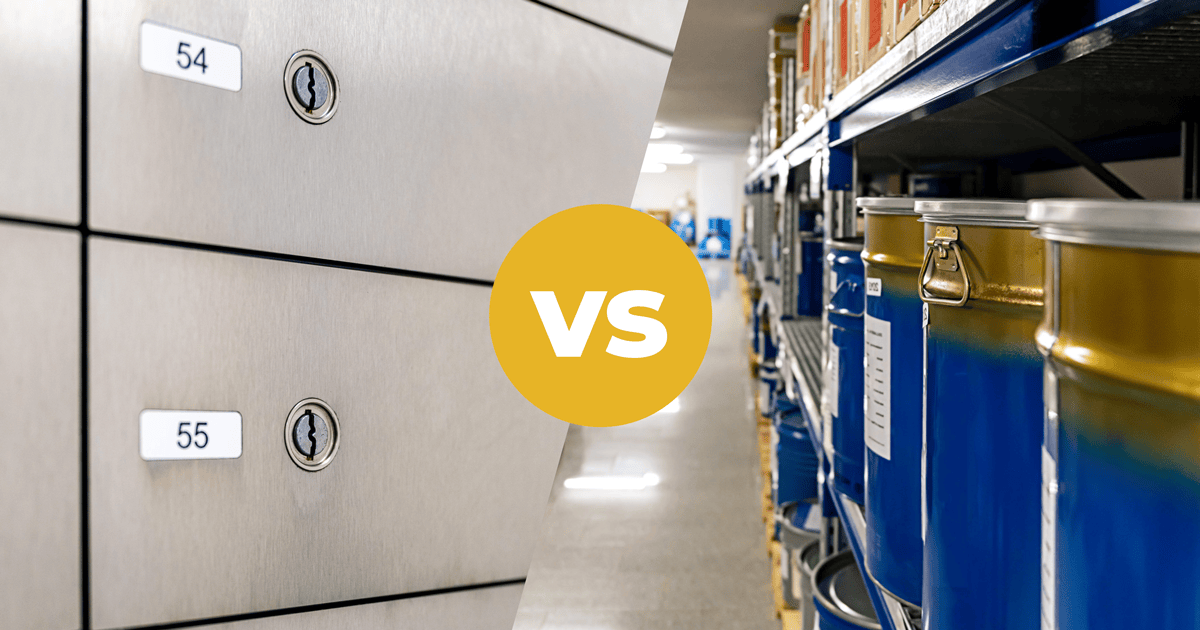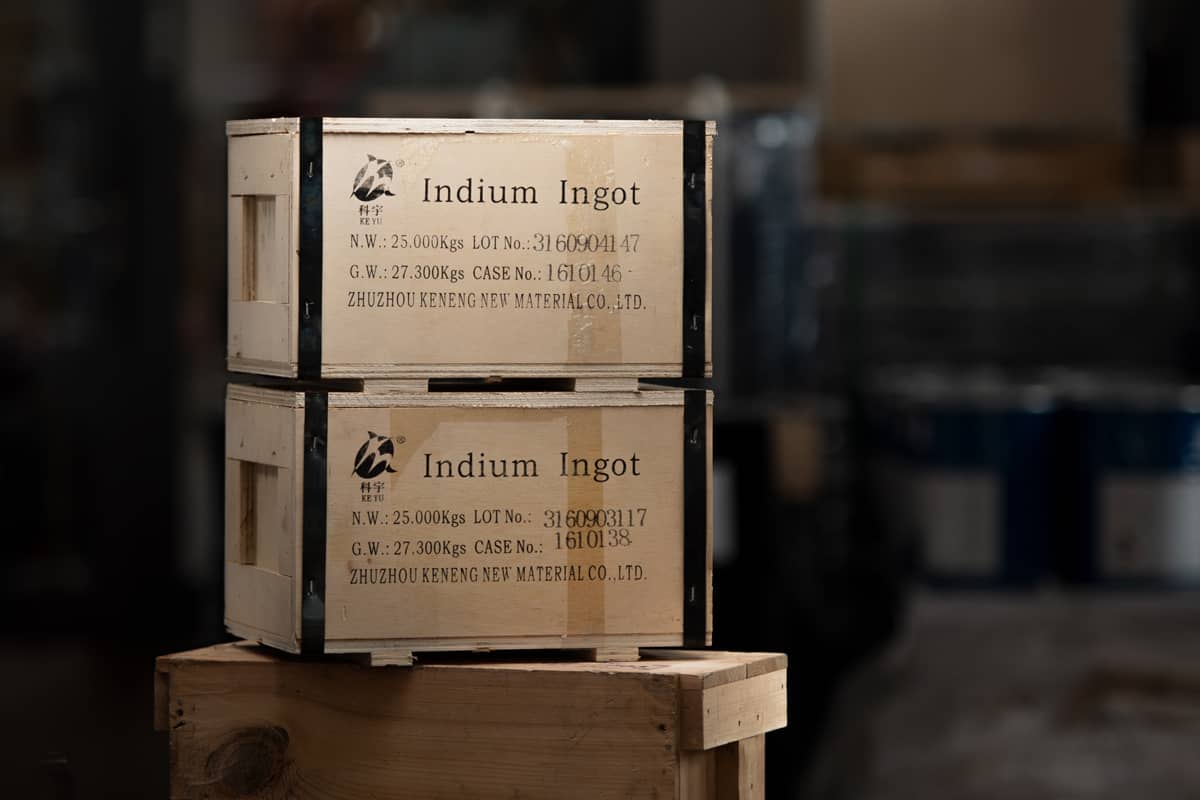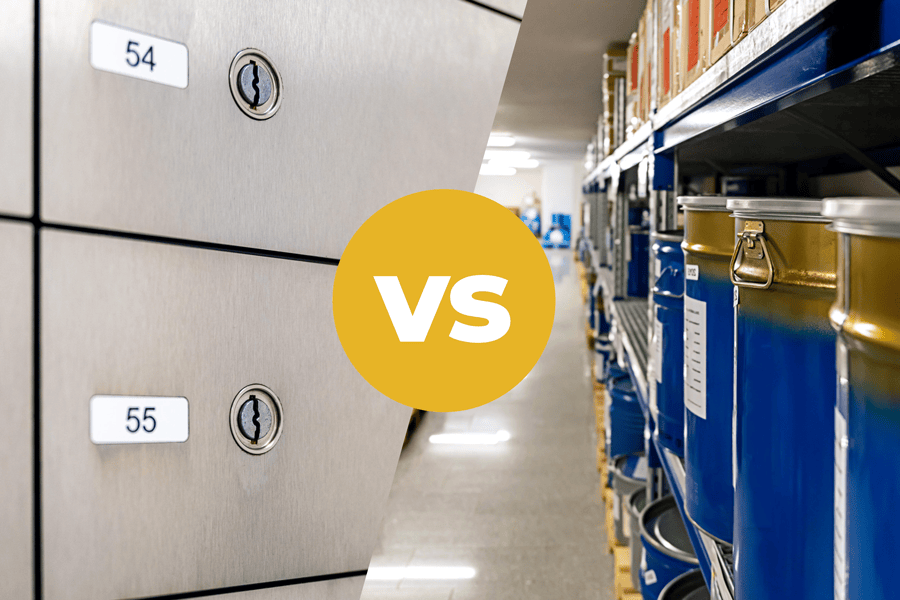Why Strategic Metals Buyers Should Prefer Collective Custody Over Individual Storage
First Steps

Strategic metals such as technology metals and rare earths are increasingly sought-after physical assets. But what’s the best way for private buyers to store them? Basically, it’s a choice between individual and collective custody. In this article, we explain the advantages and disadvantages of each method.
If you have a savings plan for strategic metals, your commodity shares are typically placed in collective custody. Your financial services provider will take care of this. If you buy metals directly from a supplier of raw materials, you can choose between two storage options: collective custody and individual custody. Both services are usually offered through a specialized service provider with a privately managed storage facility.
Individual and Collective Custody: A Brief Introduction
Usually, raw material investments are stored in collective custody, also called fractional custody. Here, a buyer owns a fraction of the stored raw material – for example, 5 kilograms of indium out of 15 tons of indium in stock. The operator of the storage warehouse ensures the quantity purchased by the customer is physically present in the facility. Customs and auditors regularly certify the inventory, and the purchased goods are recorded digitally in the respective customer accounts. Throughout the process, the inventory does not need to be physically moved.
Individual custody, on the other hand, refers to the separate storage of a purchased quantity of metal. The raw material is taken from a batch or packaging unit and packed individually. In addition to a new batch number, it also receives a certificate of analysis. Depending on the quantity, the metal is stored in a safe, a mesh box, or a pallet storage area.

Collective Custody as an Advantageous Solution
Collective custody is proving to be the best choice for private buyers of strategic metals. There are several reasons for this, all of which are closely linked to the subsequent resale of the raw materials to industry. The raw-material supplier or collective storage provider, e.g. in the form of a duty-free warehouse, can remove the desired quantity for industrial sale from the total stock at any time. In this way, requirements for rare earths and technology metals in bulk quantities ranging from a hundred kilograms to several tons can be met.
Another factor is the specifications for the material. Depending on the production process, companies require metallic raw materials with certain qualities. The specifications include, for example, the degree of purity and the compositions with other substances. Trading small quantities from several different sources is more time-consuming for industrial buyers and presents additional challenges in maintaining stable product quality.
The Disadvantages of Single-Batch Custody
As we’ve seen, the industry prefers to acquire large quantities from one batch and one seller. As a result, private sellers must expect a large time commitment and high markdowns if they want to liquidate their raw material investments. Furthermore, it may be necessary to conduct a new quality audit of the raw materials and the private seller will have to bear the cost. In addition, the seller may incur costs such as customs duties and import sales taxes. Another financial disadvantage of individual custody is that the storage space requirement is greater than for collective custody due to the separate packaging unit.
The Risks of Self-custody
We’d be remiss if we didn’t mention the third storage option: own custody. This is often practiced with the two precious metals gold and silver. The owner stores the bars or coins at home and bears all the risks of doing so, such as burglary. This form of storage is unsuitable for industrial metals. For one thing, taking the metals out of bonded storage means interrupting the industrial supply chain. In addition, the material has to be cleared through customs and import VAT must be paid, as with individual custody. Any handling and transport costs must be borne by the buyer. It’s also very difficult to re-introduce the metals to the industrial cycle due to the small quantities involved. The high discounts to be expected when they are sold can dramatically reduce the chances of profits. This is why responsible raw material traders usually don’t deliver metals for personal safekeeping by buyers.
Conclusion
Collective custody is suitable for private buyers who want to make cost-efficient investments in strategic metals. This form of storage offers the best conditions for uncomplicated resale to industry. Individual custody, on the other hand, makes liquidation to industrial buyers more difficult and is associated with higher costs and logistical effort.



